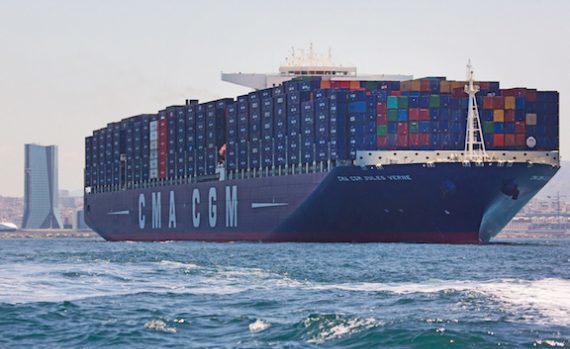What is happening with Alibaba and liner shipping?

Regular Splash contributor Lars Jensen argues boxship operators risk losing the supply chain balance of power.
The past few months have seen Chinese Alibaba announce a number of partnerships with major global carriers such as Maersk Line, CMA CGM and Zim, with the world’s largest forwarder Kuehne-Nagel as well as with the World Cargo Alliance which is the world’s largest network of freight forwarders.
This begs the question: what is Alibaba doing?
The first aspect to clarify is that the agreements mentioned above are actually not with Alibaba, but with Onetouch. Onetouch is an affiliate company of Alibaba providing a platform for the direct booking of freight. In order to support its growth, OneTouch announced as early as 2014 a rebate scheme wherein Chinese exporters were offered up to 0.03RMB in discount for every dollar worth of export orders processed through OneTouch. In essence a rebate of some 0.4% of cargo value, leveraging the trading platform of Alibaba versus the freight.
This has helped boost the size of OneTouch, and in 2016 they facilitated the shipment of $15bn worth of import/export cargo, taking up approximately 600,000 teu. For 2017 they are aiming for a tripling to $50bn, and 2018 targets $100bn of trade.
This means that OneTouch is building a position of strength vis-à-vis the traditional service providers in shipping such as banks, insurance providers, carriers, forwarders, ports etc.
In a time of market disruptions, OneTouch (and Alibaba) might indeed be in a position to cause some degree of disruption. But which type of disruption?
Ultimately, this does not change the number of teu being shipped – but it shifts the balance of power in terms of who controls the various aspects of the supply chain. Especially carriers, banks and insurance providers should perhaps look at the development and ask themselves what the end game would be for them if OneTouch proceeds at the current pace. Presently OneTouch offers the ability for carriers who are early adopters to possibly target additional volumes from small and medium sized shippers who otherwise would be using traditional freight forwarders. But ultimately, if for example the majority of Chinese shippers end up seeing OneTouch as the primary gateway to freight, the carriers could end up in a relationship not unlike the one which has emerged between individual hotels and platforms such as Expedia, where the actual capacity providers are forced to accept high transactional fees or lose access to large parts of the market.

The hypothesis looks very plausible.
It is not easy to see how liner companies can respond to the commodification of their business offering by e-commerce platforms as alert as Ali-Baba.
One thing is for sure – for lines to respond by seeking to add value to their offerings will fail. It always does.